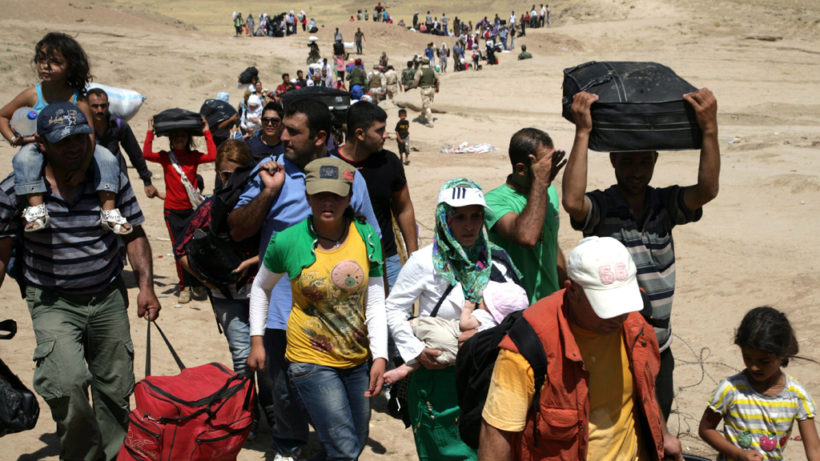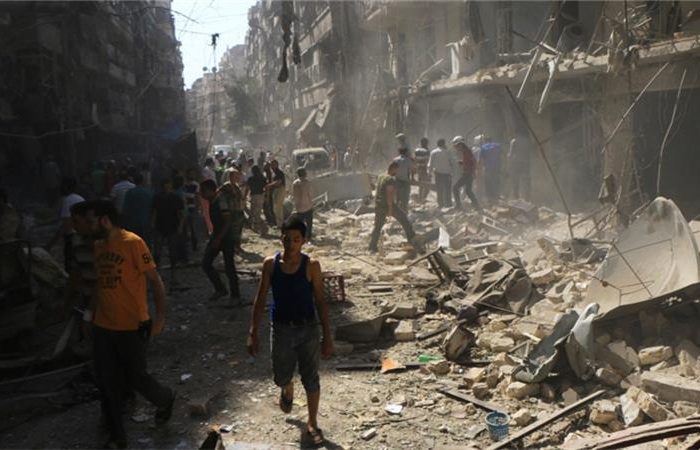
Syrian refugees (Aug. 2014)
Migrant vs. refugee
The term “migrant” is defined in the Oxford English Dictionary as:
one who moves, either temporarily or permanently, from one place, area or country of residence to another
There are various reasons for migration, such as:
- those who move to work or seek a better life – generally termed “economic migrants”
- people who move for family reasons or to study
- people also migrate to flee conflict or persecution, which is where the definition converges with the term “refugee“
A refugee is defined as a person who has been forced to leave their country in order to escape war, persecution or natural disaster.
The UN’s 1951 Convention relating to the Status of Refugees describes a refugee as:
“A person who owing to a well-founded fear of being persecuted for reasons of race, religion, nationality, membership of a particular social group or political opinion, is outside the country of his nationality and is unstable or, owing to such fear, is unwilling to avail himself of the protection of that country; or who, not having a nationality and being outside the country of his former habitual residence as a result of such events, is unable or, owing to such fear, is unwilling to return to it.”
The same debate over terminology has arisen over the use of the terms “migration” and “immigration.” Migration is a general term describing the movement of people from one area to another, but immigration is a sub-category which normally refers to people moving into a country from another who intend to stay permanently.
(from a Sept. 3, 2015 International Business Times article)



